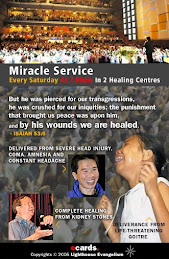Let me first address the issue of the existence of God by drawing your attention to this webpage:
http://www.everystudent.com/features/isthere.html
If the above doesn't convince you that God is real, then history should.
An excerpt from "More Than A Carpenter" by Josh McDowell
We can appreciate the tremendous wealth of manuscript authority for the New Testament by comparing it to textual material available to support other notable ancient writings.
The history of Thucydides (460-400 BC) is available to us from only 8 manuscripts dated about AD 900, almost thirteen hundred years after he wrote. The manuscripts of the history of Herodotus are likewise late and scarce. And yet, as F.F.Bruce, Rylands Professor of Biblical Criticism and Exegesis at the University of Manchester, concludes, "No classical scholar would listen to an argument that the authencity of Herodotus or Thucydides is in doubt because the earliest manuscripts of their works which are of use to us are over 1,300 years later than the originals."
Aristotle wrote his poetics around 343 BC, and yet the earliest copy we have is dated AD 1100 (a gap of almost fourteen hundred years), and only five manuscripts exist.
Caesar composed his history of the Gallic Wars between 58 and 50 BC, and its manuscript authority rests on nine or ten copies dating one thousand years after his death.
"Consider Tacitus," says Bruce Metzger, author or editor of fifty books on manuscript authority of the New Testament, "the Roman historian who wrote his Annals of Imperial Rome in about AD 116. His first six books exist today in only one manuscript, and it was copied about AD 850. Books eleven through sixteen are in another manuscript dating from the eleventh century. Books seven through ten are lost. So there is a long gap between the time that Tacitus sought his information and wrote it down and the only existing copies.
"The quantity of the New Testament material," confesses Metzger, "is almost embarrasing in comparison with other works of antiquity."
When I first wrote this book in 1981, I was able to document 4600 Greek manuscripts of the Bible, abundantly more source material that exists than for any other book written in antiquity. However, as of this writing (2007), even more Greek manuscripts have been found, and I can now document more than 5600 of them.
Jewish scholar Jacob Klausner said, "If we had ancient sources like those in the Gospels for the history of Alexander or Caesar, we should not cast any doubt upon them whatsoever."
Anglican bishop and New Testament historian Stephen Neill argues that "we have a far better and more reliable text of the New Testament than of any other ancient work whatever."
New Testament Greek Scholar J. Harold Greenlee adds: "Since scholars accept as generally trustworthy the writings of the ancient classics even though the earliest manuscripts were written so long after the original writings and the number of extant manuscripts is in many instances so small, it is clear that the reliability of the text of the New Testament is likewise assured."
If you are still unconvinced, allow me to challenge you to pray this: "Dear Lord Jesus, I have doubts about your existence. If you really are God, then please open my eyes and let me see, so that I may believe. In Jesus' Name I pray, Amen."
Trust me, God hears and understands. Accept this challenge and you will see God's power in your life.
Monday, February 15, 2010
let Me teach you... Part 2
Subscribe to:
Post Comments (Atom)















No comments:
Post a Comment